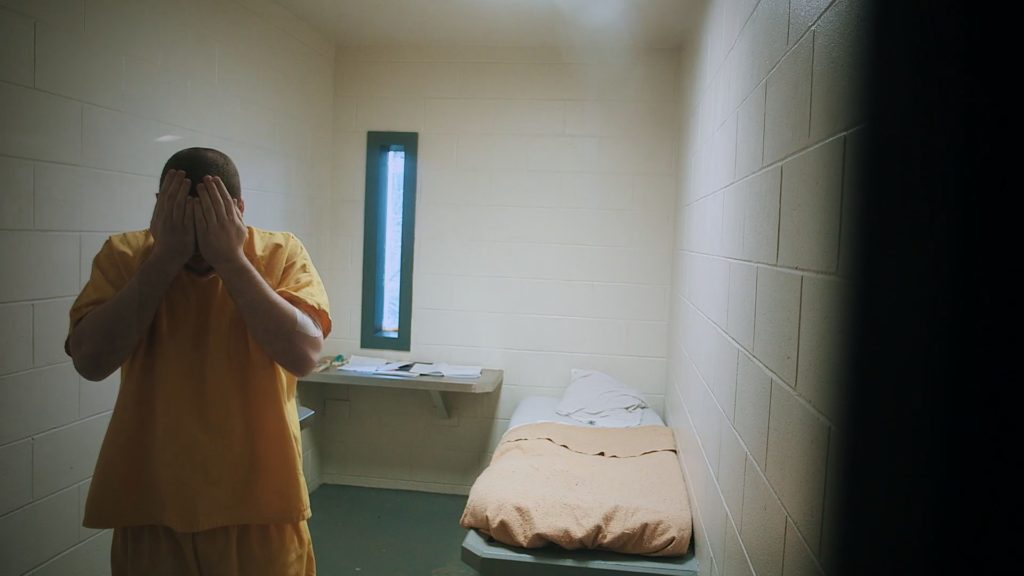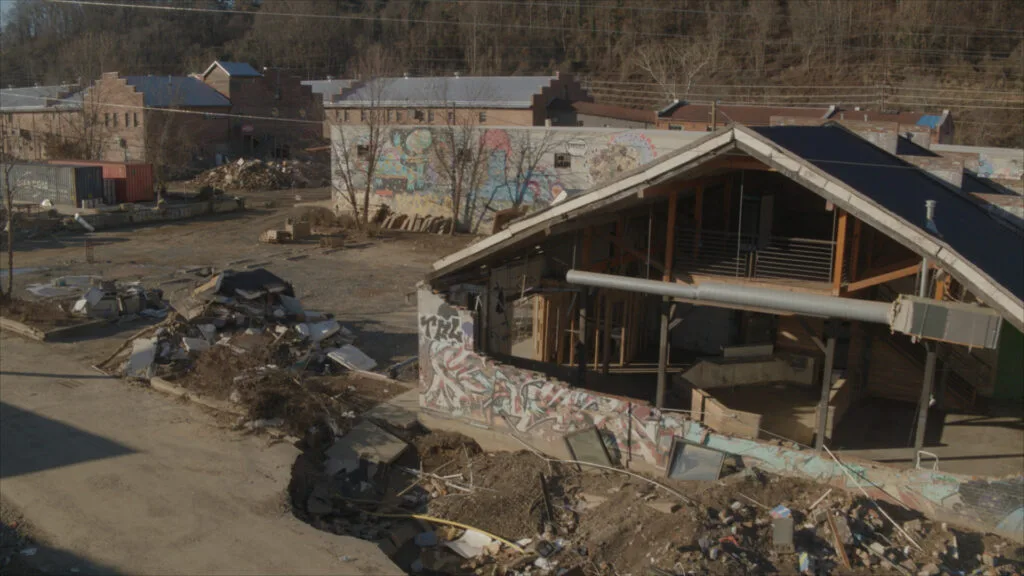On April 18, FRONTLINE Presents “Last Days of Solitary” — A Major, Two-Hour Documentary on Solitary Confinement in America

March 30, 2017
Share
Premiering on PBS and online: Tuesday, April 18, 2017, at 9 p.m. ET / 8 p.m. CT pbs.org/frontline/last-days-of-solitary www.facebook.com/frontline | Twitter: @frontlinepbs #SolitaryPBS Instagram: @frontlinepbs | YouTube: youtube.com/frontline Tumblr: frontlinepbs.tumblr.com
The U.S. is the world leader in solitary confinement, with more than 80,000 American prisoners being held in isolation. But in recent years, more than 30 states have begun to experiment with reforms aimed at reducing the use of solitary.
On Tuesday, April 18, FRONTLINE presents Last Days of Solitary — a searing, two-hour documentary that offers American television’s most comprehensive exploration of this controversial practice, and goes inside one state’s ambitious attempt to decrease its use.
Filmed over three years by producers Dan Edge and Lauren Mucciolo, with immersive, unprecedented access to the solitary unit at Maine State Prison, Last Days of Solitary portrays — almost in real-time — the psychological disintegration of human beings, and the challenge of how to deal with men considered the most dangerous and difficult in the state. It’s a haunting portrait of life in solitary, and a unique document of a risky reform experiment.
“What it boils down to is: what are our prisons for?” says Edge, who began investigating incarceration in America for 2014’s Solitary Nation and Prison State. “Are they there simply to punish? Or are they there to rehabilitate prisoners and make us safer long-term?”
The result of a years-long reporting effort, Last Days of Solitary offers a window into life in Maine State Prison’s segregation unit, as officials there and across the country try to re-think the system.
“The normal person who doesn’t work in a facility like this, they’re gonna be thinking if you punish them, you’re gonna make ‘em better,” Rodney Bouffard, the prison’s warden from 2013 – 2015, tells FRONTLINE about the use of solitary. “The reality is, the exact opposite happens…. You could have someone in here on a five-year commitment. You could have them do their whole time in segregation. But I don’t want him living next to me when we release him.”
Over three years, Last Days of Solitary follows the prison’s efforts to introduce new programming in the segregation unit, improve mental health treatment, and launch a treatment-intensive, step-down unit to help prisoners transitioning out of solitary re-acclimate into the community safely. The film also traces the experiences of five individual inmates:
- Todd Fickett, arrested for arson, a serial self-harmer: “Down here, makes you feel like you’re being buried alive,” he says.
- Sam Caison, who has had a long history in solitary during his nearly 20 years behind bars for various offenses, including assault: “You lose all feeling; you become immune to everything,” he says.
- Adam Brulotte, in on a short sentence for assault, who unravels quickly when starting a riot lands him in the solitary unit.
- Gordon Perry, who is serving a life sentence for murder, and is in solitary for stabbing another inmate.
- Richard Stahursky, one of the prison’s most notorious inmates, who is released from solitary as part of the reform effort – but then murders another inmate in the general population section of the prison.
Stahursky’s attack highlights the complexities, challenges, and risks of trying to reform the system. Drawing on gripping interviews with key players, Last Days of Solitary traces the murder’s impact on the prison’s experiment.
“I think the key around that particular incident and that homicide, which was horrific, was to treat it appropriately, hold the offender accountable, but not sabotage a system that was moving in an appropriate direction,” Dr. Joseph Fitzpatrick, appointed Maine Commissioner of Corrections shortly after the murder, tells FRONTLINE.
Maine’s efforts appear to be delivering results: As of 2017, the prison is holding only eight inmates in solitary, down from a high of more than 100 in 2011, and officials say self-harm is down by more than 80 percent.
“Ultimately, over the last couple of years… we find out it’s relatively a small group of guys who are extremely dangerous and we have to keep them isolated from other human beings or they’ll hurt them,” says Dr. Dan Bannish, the prison’s director of mental health. “There will be certain individuals within seg who are just plain dangerous and should stay there, but that is a very small number.”
But how prisoners who have spent considerable time in solitary can integrate back into society remains an open question, as FRONTLINE finds when following up with recently released inmates: “It leaves a scar on you that you won’t forget, and you can’t heal it no matter how good you are,” Brulotte says.
With intensity, depth and clarity, Last Days of Solitary shines an unblinking light on a world that until now has been largely hidden from public view.
Credits
Last Days of Solitary is a FRONTLINE production with Mongoose Pictures. The producers and directors are Dan Edge and Lauren Mucciolo. The executive producer of FRONTLINE is Raney Aronson-Rath.
About FRONTLINE FRONTLINE, U.S. television’s longest running investigative documentary series, explores the issues of our times through powerful storytelling. FRONTLINE has won every major journalism and broadcasting award, including 82 Emmy Awards and 18 Peabody Awards. Visit pbs.org/frontline and follow us on Twitter, Facebook, Instagram, YouTube, Tumblr and Google+ to learn more. Founded in 1983, FRONTLINE is produced by WGBH Boston and is broadcast nationwide on PBS. Funding for FRONTLINE is provided through the support of PBS viewers and by the Corporation for Public Broadcasting. Major funding for FRONTLINE is provided by The John D. and Catherine T. MacArthur Foundation. Additional funding is provided by Ford Foundation, the Park Foundation, the John and Helen Glessner Family Trust and the FRONTLINE Journalism Fund with major support from Jon and Jo Ann Hagler on behalf of the Jon L. Hagler Foundation.
Press Contacts Patrice Taddonio, Patrice_taddonio@wgbh.org, 617.300.5375 Anne Husted, anne_husted@wgbh.org
Latest Documentaries
Explore
Policies
Teacher Center
Funding for FRONTLINE is provided through the support of PBS viewers and by the Corporation for Public Broadcasting. Additional funding is provided by the Abrams Foundation; Park Foundation; the John D. and Catherine T. MacArthur Foundation; and the FRONTLINE Trust with major support from Jon and Jo Ann Hagler on behalf of the Jon L. Hagler Foundation, and additional support from Koo and Patricia Yuen. FRONTLINE is a registered trademark of WGBH Educational Foundation. Web Site Copyright ©1995-2025 WGBH Educational Foundation. PBS is a 501(c)(3) not-for-profit organization.


















